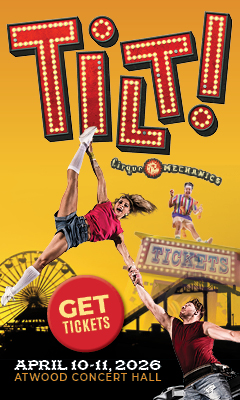Reading and learning
— make it part of the summer fun!
By Elizabeth Nicolai

As the classic “schools out” song says, “No more pencils, no more books… .” For most children and parents, the start of summer vacation is a much-anticipated break from school, routine and structure. Unfortunately, too often, this break from books and structured learning can have detrimental effects.
Kids who don’t read during the school break are at risk for “summer slide,” where they lose progress in reading and other academic skills. Research shows that students without access to summer learning opportunities can lose two to three month’s worth of reading progress. Up to two-thirds of the achievement gap in 9th grade can be traced back to summer learning loss in elementary school.
However, none of this means setting up a mini school in your living room. Summer is the time to remind your children just how fun learning can be. Encourage them to follow their passions while they read about, learn about, and explore the world around them.
Here are some great tips of fun activities to encourage reading and learning all summer long!
Cook Together
Try out a new recipe or share a family favorite together. Cooking encourages a number of important skills:
- Reading: Pre-readers will be encouraged to learn to read by seeing the fun (and delicious) results and beginning readers can practice their skills with the recipes.
- Math: Measuring ingredients is a great fun and practical math exercise.
- Executive function skills: Following a recipe helps children learn to break larger projects into smaller steps.
- Social studies: Try a recipe from a new culture or a different country. Listen to music from that country while you cook, or investigate the country and culture where a recipe originated.
Take an Exploration Walk
Take a family walk around your neighborhood, your local trail, or even out into the wilderness. Talk about what you see and discover.
- Early literacy: The more you talk to children, the richer their vocabulary and the quicker they will learn to read. Encourage children by adding more information (such as colors, sizes and other descriptors) when they notice things. If they say flower, respond, “yes a flower, a yellow flower.”
- Math: Count things that you see. How many cars? Dogs? For older kids, turn them into word problems, if you saw five cars, how many wheels drove past you?
- Science: Get a field guide and see how many plants, animals and bugs you can identify. Take a notebook and make your own notes on how the plants and bugs behave differently as summer goes along.
Capturing Stories
While everyone loves to read stories, it is even more fun to tell your own stories. Writing stories builds literacy skills such as narrative skills and writing. It also helps improve long-term memory.
- Younger children: After an adventure (like a vacation or a day at the zoo), have them write up the story of what happened. Illustrate it with hand-drawn pictures or photos you have taken.
- Older children and teens: Have them interview other family members and elders to capture family stories and memories of when you or their grandparents were young. If they videotape it, can they edit the video? If you tell it to them, can they write it up?
Visit the Library
Look for a book or DVD, use the computer, or attend one of many weekly programs for children and families over the summer. Everyone can sign up for a summer program that gives prizes (like free books) for reading and other learning activities. Even if you can not make it into the building, some libraries have free downloadable books, music, shows and more on their websites!
Other Fun Activities
- Paper airplanes: This classic activity is perfect for rainy days. Whose plane can go the farthest? Can you make your plane do a loop-de-loop? What happens if you add a weight like a paper clip to your plane? Even this simple activity teaches the science of lift, air flow, and other basic STEM principles.
- Board Games: When you play board games and card games together as a family, you’re encouraging social skills (taking turns, working together), math (keeping score), reading (following directions printed on the board or rule book), and you’re bonding and creating memories.
- Music: Discover new music together with CDs from the library, download songs online, or get suggestions from a friend. Let your older child or teen choose a song for you and you choose one for them. Play music together with improvised instruments like pots and pans and water glasses full of water. Singing helps children hear the smaller parts of words (the phonemes) to build and improve reading readiness and skills.
Favorite Resources for More Fun Activities
- Bedtime Math: Every day a new math challenge for everyone from learning to count to learning algebra. bedtimemath.org
- StoryCorps: A great resource for advice on interview questions and technical advice to record a story from a loved one or elder. storycorps.org
- Fun at Home With Kids: Screen-free activities to encourage art, science, reading and more. funathomewithkids.com











